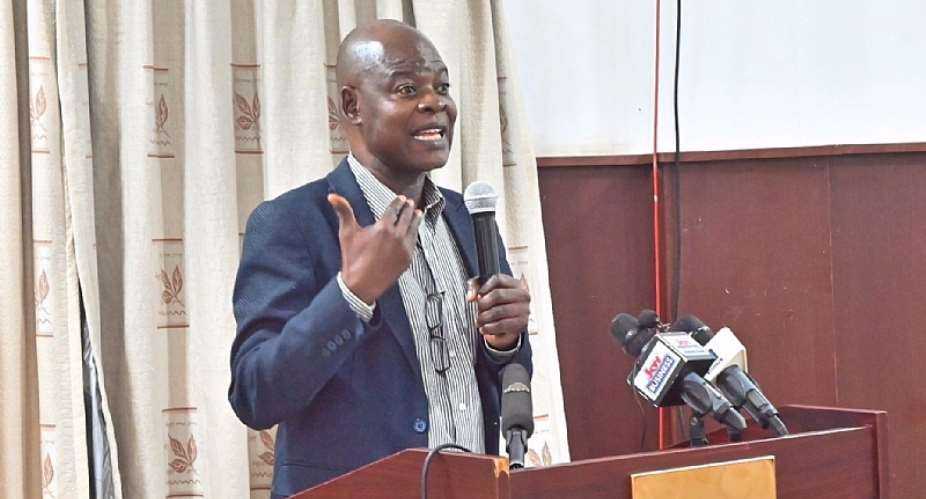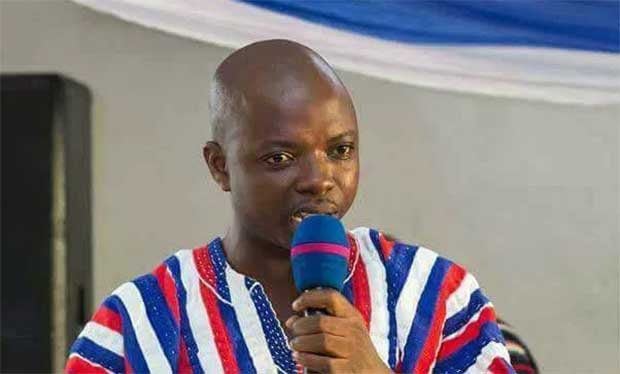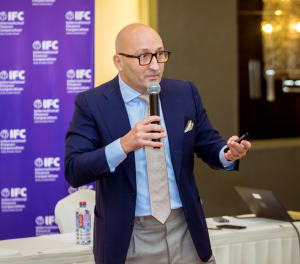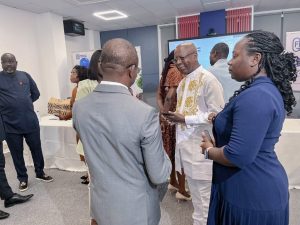
By Ebenezer Chike Adjei NJOKU
The 24-Hour Economy Plus (24H ) Programme has received fresh impetus following the signing of a financing agreement between its Secretariat and the Arab Bank for Economic Development in Africa (BADEA), hosted at the Bank of Ghana (BoG) headquarters in Accra.
This Memorandum of Understanding (MoU) paves the way for up to US$500million in financing, with the first tranche of US$60million channelled through the Development Bank Ghana (DBG) as anchor institution for on-lending to small- and medium-sized enterprises (SMEs). Other domestic banks and non-bank financial institutions are expected to participate in subsequent phases.
The deal represents one of the most tangible steps yet in government’s ambition to mobilise more than US$4billion over five years to operationalise the 24H Programme, a flagship initiative aimed at expanding the domestic productive base, strengthening value chains and accelerating export-led growth.
Speaking on behalf of Governor Dr. Johnson Asiama, who is chairing the central bank’s 126th Monetary Policy Committee meeting, Second Deputy Governor Matilda Asante-Asiedu described the partnership as a critical milestone in aligning long-term finance with Ghana’s structural transformation agenda.
“Unlocking affordable, patient capital for SMEs and cooperatives is essential if we are to sustain the momentum of economic diversification,” she said.
“The Bank of Ghana welcomes BADEA’s commitment and we stand ready to provide the regulatory oversight necessary to ensure these resources are channelled effectively into productive sectors of the economy,” she added.
BADEA as long-term partner
The agreement was signed in the presence of a high-level BADEA delegation led by President Abdullah KH Almusaibeeh -accompanied by Dr. Fatima Farouk Elsheikh El Toun, Secretary General of the Boards of Governors and Directors, as well as other senior officials.
Mr. Almusaibeeh said BADEA, which has a history of interactions with Ghana, is expanding its engagements beyond traditional commodity finance into infrastructure, SME and value-chain financing.
“BADEA has historically stood with Ghana, whether during cocoa syndications or in the difficult period of COVID-19 pandemic. This partnership marks a new phase, one in which BADEA commits not only funding but also long-term support for Ghana’s ambition to build a more diversified, inclusive and export-ready economy,” he stated.
The BADEA president added that the bank’s financing windows will target agriculture, logistics, human capital and green investment, aligning closely with thematic priorities of the 24H Programme.
Structure
Under the facility, concessional loans will be provided at interest rates below 12 percent, with repayment periods of five to seven years. Products will include working capital, asset finance, warehouse receipt loans, input financing, invoice discounting and climate-aligned finance.
An accompanying equity fund is also planned to support growth-stage enterprises, particularly those led by youth and women. To mitigate risk, the facility will be backed by credit guarantees and insurance schemes developed in collaboration with the Ghana Incentive-Based Risk Sharing System for Agricultural Lending (GIRSAL) and other partners.
In addition, a digital loan application portal will be deployed to improve transparency, speed up credit scoring and broaden financial inclusion.
Building capacity through Fund24
The MoU forms part of Fund24 – financing pillar of the 24H Programme. According to Presidential Advisor on the 24-Hour Economy Goosie Tanoh, the partnership with BADEA complements an earlier MoU with the African Development Bank (AfDB) and further discussions are ongoing with other development finance institutions.
“The ambition is to source funding across multiple windows; infrastructure, SME finance, agricultural value chains and human capital development,” Mr. Tanoh said.
“Today we have triggered the mechanisms that allow BADEA to support SME on-lending through DBG, trade finance facilities and infrastructure funding through the Ghana Infrastructure Investment Fund,” he further stated.
He highlighted the Volta Economic Corridor as a priority for infrastructure and value-chain development, alongside projects in Kumasi, Central Region and Western North.
Expected impact
By 2030, the facility is projected to mobilise more than US$18billion in SME financing, strengthen agro-processing and logistics value chains and build a pipeline of investment-ready enterprises. The programme is also designed to foster a transition toward inclusive, patient capital that can sustain the economic transformation.
Safeguards and governance assurances
Addressing concerns about governance, Mr. Tanoh stressed that the funds would not flow directly to the Secretariat or government accounts but rather through the private sector.
“This is a private sector-driven programme. The idea is to create a de-risked lending and equity investment environment that assures investors – whether through debt or equity – that their capital will be prudently managed, secured by credit backstops and deployed to generate returns,” he explained.
This approach is intended to reassure development partners and private investors who are wary due to past concessional financing mismanagement.
Next steps
Following the MoU, the Secretariat and BADEA will move to sign agreements with participating financial institutions (PFIs), establish a joint steering committee to oversee implementation and operationalise a US$120million trade finance facility alongside the on-lending programme.
Further steps include the providing technical assistance and capacity building to partner institutions and SMEs, including export-readiness and business development services.
The post 24H economy drive gains added momentum with US$500m BADEA deal appeared first on The Business & Financial Times.
Read Full Story
















Facebook
Twitter
Pinterest
Instagram
Google+
YouTube
LinkedIn
RSS